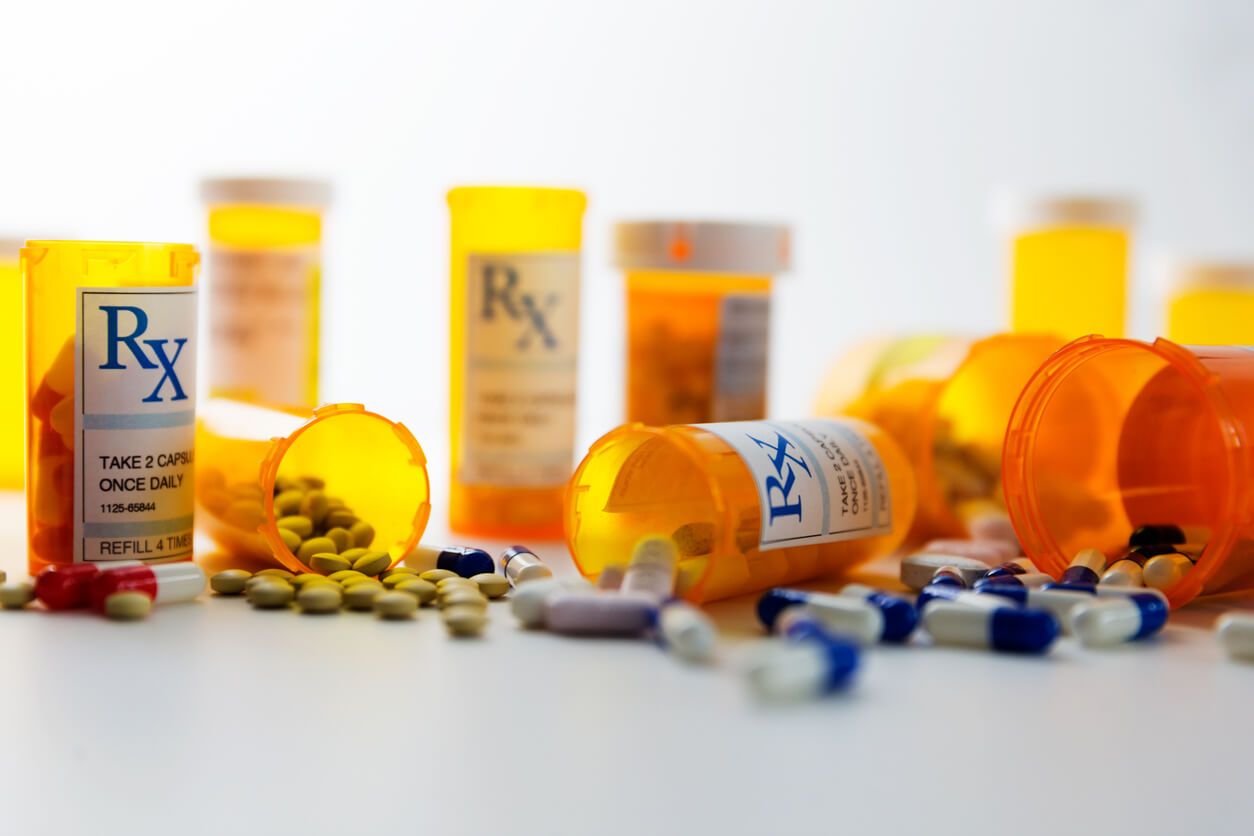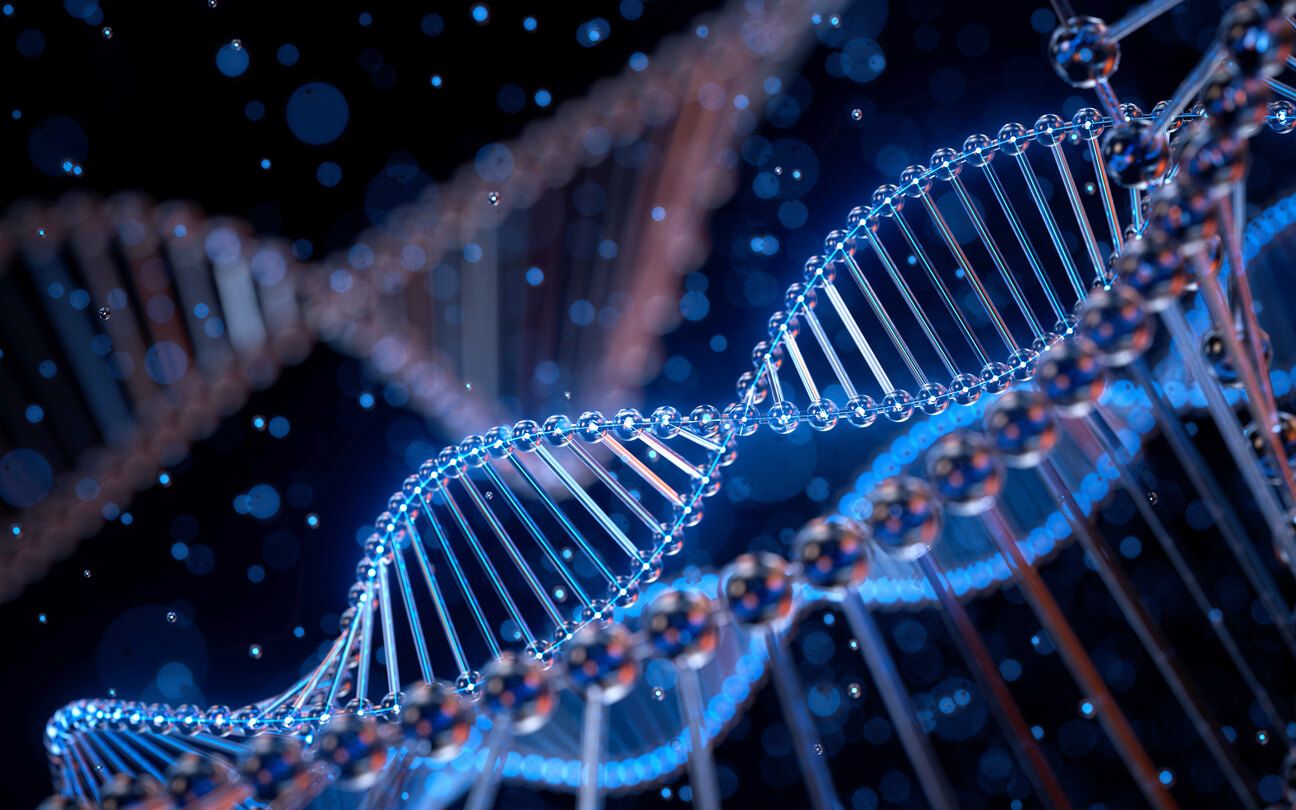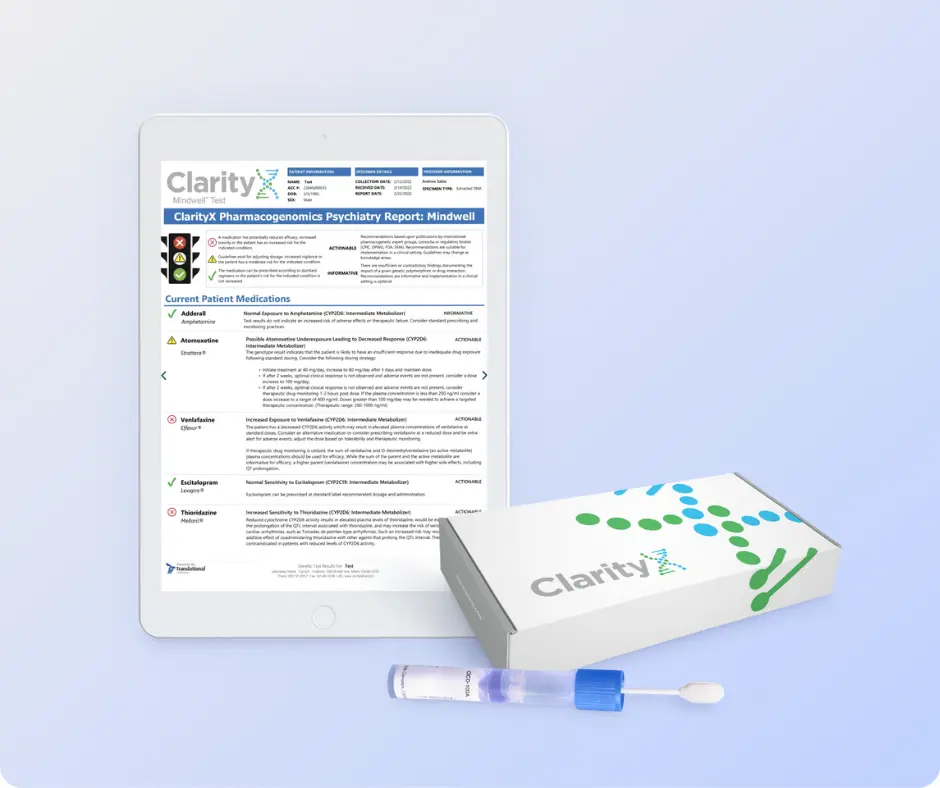Everybody’s received a cholesterol test at some point in their life. Cholesterol, a waxy organic molecule made by the liver and found in many foods, is necessary for your body. However, too much cholesterol can end up being detrimental to your health.
In the United States, over 93 million adults have high cholesterol levels, and only 55% of people that need cholesterol medication actually take it.
Despite the benefits of medication, many people are hesitant to receive treatment as it often requires a “trial and error” process of going through different drugs. At ClarityX, we use genetic testing for high cholesterol to determine which medications work best for you. Here’s a more in-depth look at the problems found with high cholesterol and how a genetic test can help.
High Cholesterol And Why It's A Problem
Cholesterol is an important substance that’s responsible for several bodily functions, including making cell membranes, hormones and Vitamin D. While everyone has cholesterol, it’s important to watch your diet and make sure your cholesterol levels stay healthy. Not only does high cholesterol narrow your blood vessels, but it also puts you at risk for coronary artery disease and stroke. Cholesterol can be divided into different types:
- Low-density lipoprotein (LDL) cholesterol: Often called “bad cholesterol,” this type builds up in the arteries and causes dangerous blockages.
- High-density lipoprotein (HDL) cholesterol: Known as “good cholesterol,” this type helps remove cholesterol build-ups from your arteries.
- Non-HDL cholesterol: This refers to your total cholesterol minus your HDL cholesterol — it also includes LDL cholesterol. For adults, it’s recommended that non-HDL cholesterol levels remain below 130 milligrams per deciliter (mg/dL) to reduce the risk of clogged arteries, stroke, and heart disease. High cholesterol can be caused by several things, from poor diet and smoking to medical conditions and genetics. Whether your cholesterol levels are high due to lifestyle choices or your genetic makeup, there are treatments available to help you maintain control.
Treatments for High Non-HDL Cholesterol
There are no symptoms to detect high cholesterol, so it’s important to get regular blood tests to check your levels. If your results are not desirable, your doctor may recommend lifestyle changes and prescribe a treatment for high non-HDL cholesterol, such as:
- Statins: This type of medication inhibits your liver’s ability to create cholesterol. It also helps the liver remove cholesterol from your blood.
- Cholesterol absorption inhibitors: These drugs lower the amount of cholesterol your small intestine absorbs and releases into the blood.
- PCSK9 inhibitors: By helping the liver absorb more LDL cholesterol, these drugs can decrease the overall amount of cholesterol in your blood.
- Bile-acid-binding resins: This medication indirectly lowers cholesterol by binding to bile acids (which are made using cholesterol), preventing them from absorbing into the bloodstream.
- Fibrates: These drugs influence your liver’s cholesterol production to lower your LDL levels and boost your HDL levels.
Each of these medication types comes with a wide range of name-brand drugs to choose from. Most doctors will go through a trial and error process, in which they analyze your cholesterol levels, prescribe a certain drug, and adjust if your body doesn’t react well. Not only is this procedure time-consuming, but it can also be stressful for your body. Fortunately, there’s a solution: genetic testing for high-cholesterol medications.
Genetic Testing for High Cholesterol
Genetic testing, or pharmacogenetics, is a relatively new field that takes advantage of the information found in our DNA. All DNA molecules contain genetic material that builds enzymes, a protein that metabolizes medication. When enzymes metabolize slowly, the drug is left in the body for longer than normal, resulting in unsavory side effects. When enzymes metabolize too quickly, the drug is broken down before it has a chance to do its job.
Through DNA testing, researchers can look for genetic variations that cause enzymes to metabolize poorly. Testing focuses specifically on cytochrome P450 (CYP450), an enzyme responsible for metabolizing over 70% of clinically used drugs. For example, the enzyme CYP3A4 breaks down statins like simvastatin and atorvastatin — by evaluating your CYP3A4 enzymes, genetic testing can determine whether your body can effectively metabolize these drugs. Whether you’ve been recently diagnosed or are trying to discover a new treatment for high cholesterol, genetic testing helps you find a medication that works with your body.
Who Needs Genetic Testing for High Cholesterol Medications?
Anybody can reap the benefits of cholesterol genetic testing — however, it’s especially important if one of the following applies to you:
- You are predisposed to high cholesterol: Those that have a family history of high cholesterol should be tested often to maintain their health. Genetic testing can also help prepare for any future treatment.
- Your current medication isn’t working for you: If you have poor cholesterol levels and are struggling with your medication, DNA testing can help you find a new treatment for high cholesterol that aligns better with your body.
- You’ve had adverse reactions to medications before: If you have a history of suffering from adverse side effects, you may have a genetic variation that makes it difficult to break down certain drugs — DNA testing can help you pinpoint those drugs.
Making the initiative to get a DNA test can go a long way in terms of finding the best treatment for your needs.
Get Genetic Testing for High Cholesterol Today!
High cholesterol has the potential to cause serious health issues, which is why it’s important to receive treatment. At ClarityX, we are committed to helping people find a medication that effectively lowers cholesterol without causing adverse side effects. Through a simple DNA test that can be used with saliva, we can analyze your genetic material and find variations that might affect your ability to break down certain drugs. Optimize your health by contacting us for a DNA test today!





